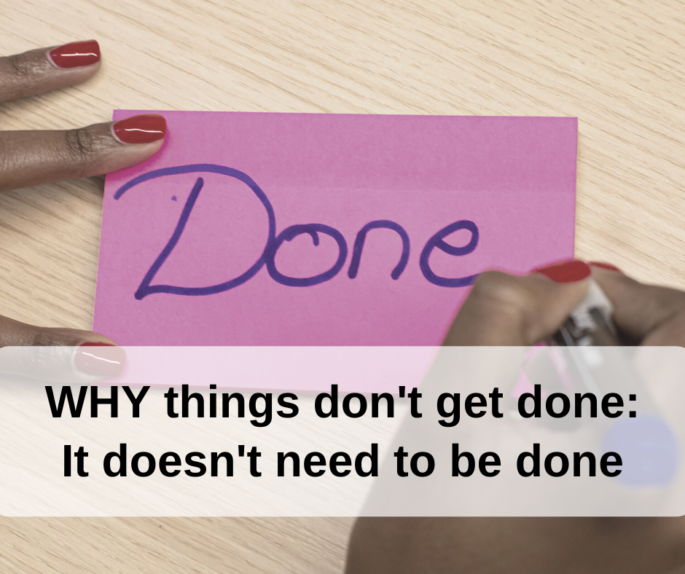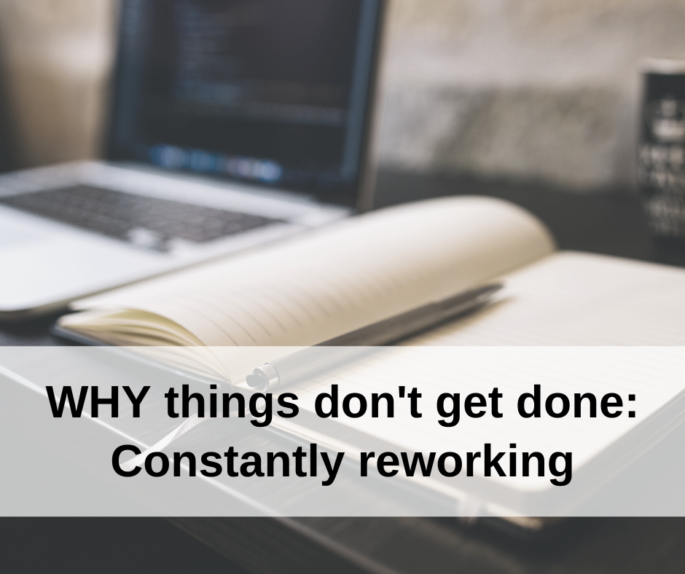Welcome to Part Six, the last in the WHY things don’t get done series. (Part 1, Part 2, Part 3, Part 4, Part 5)
Last week we talked about making things too complicated.
This week we’re talking about things that don’t actually need to be done.
Have you ever talked with someone and they tell you that you should do this? Or they tell you they know someone else who does what you do, and that person does it this way?
It’s not a bad idea, so you put it on your list.
But it just sits there, looming, frustrating you because it doesn’t get done.
It could be a case of productive procrastination (where you do less important things to procrastinate on the more important things). But another reason it doesn’t get done is it doesn’t actually need to be done.
Just because others do it that way doesn’t mean it’s a good idea for you.
These are usually things you think you should do because everyone does it or offers it. However, these can also be things that someone told you you need to do.
If it’s been more than a couple of months, if it was important to you, you’d have already done it (or started it).
This can also happen for things that don’t align with your business intentions or goals. This doesn’t mean it’s unethical. It means that you might be focusing on attracting new clients, and updating that one page on your website doesn’t align with that intention right now. Basically, it’s not a priority right now and can be added to your “later list.”
So, if something has been on your to-do list for a long time, review it to determine if it’s something that you think you should do or it’s just not a priority for you.
If it is a priority for you, set some time aside to start working on it so that your words match your actions.
If you prefer listening/watching, you can catch this on YouTube or in my free FB group.



